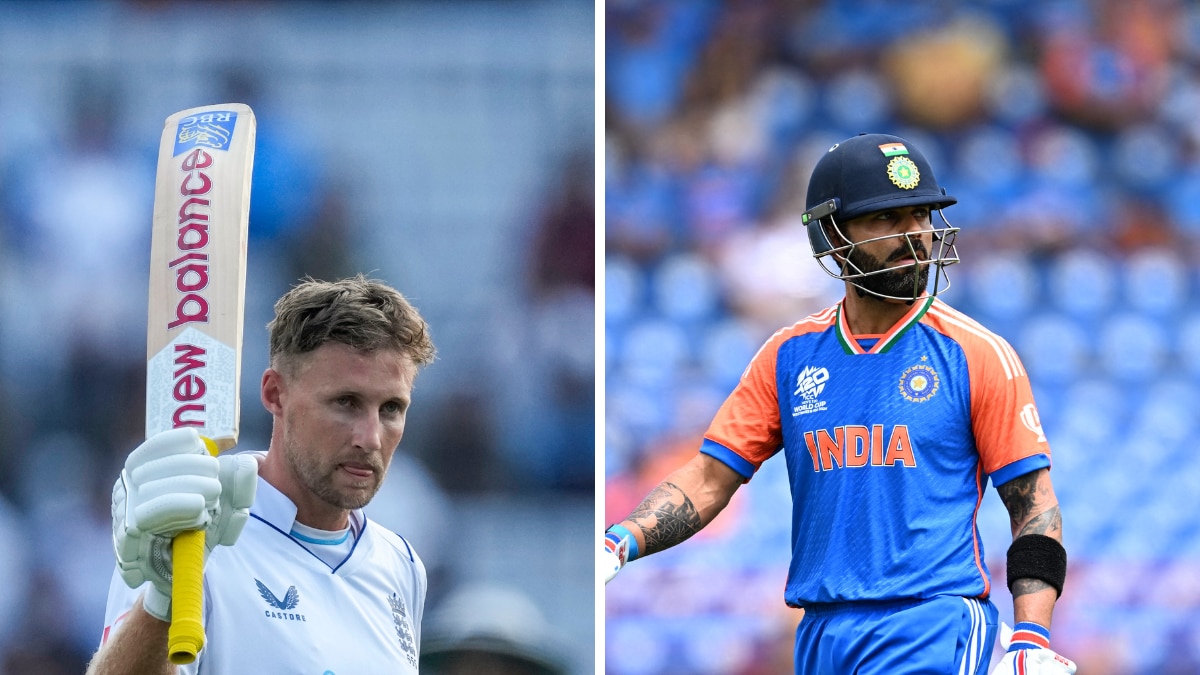Michael Vaughan, the former England captain, ignited a heated debate on social media after comparing Joe Root’s Test record with that of Virat Kohli. His intention, seemingly a playful comparison, backfired as fans fiercely defended Kohli, pointing out the limitations of comparing across formats and highlighting Kohli’s dominance across multiple formats.
Vaughan’s Cheeky Comparison
Vaughan, known for his witty remarks, took to X (formerly Twitter) to celebrate Root’s achievement of equalling Alastair Cook’s record of 33 Test centuries. He compared Root’s statistics with Kohli’s, highlighting the number of innings played, runs scored, highest scores, averages, and strike rates in a handwritten note. This comparison, seemingly aimed at playfully suggesting Root’s superiority in the Test format, struck a nerve among Kohli’s fans.
The Backlash Begins
The response on X was swift and fierce, with Kohli’s supporters vehemently defending their idol. The comparison was widely criticized as simplistic and misleading, overlooking Kohli’s extraordinary contributions across all formats.
Many users pointed out Root’s relatively weaker performance outside of England. Some highlighted that 70% of Root’s centuries were scored on home soil, labeling him as a “home track bully.” The argument highlighted Kohli’s dominance across all three formats, while Root predominantly excels in Test cricket.
A Comparison Across Formats
The crux of the controversy lies in the inherent difficulty of comparing players across different formats. Vaughan’s comparison focused solely on Test statistics, ignoring the fact that Kohli is a globally renowned batsman who has achieved phenomenal success in all three formats – Tests, One-Day Internationals (ODIs), and Twenty20 Internationals (T20Is).
The Impact of Format Differences
Comparing players across different formats is akin to comparing apples and oranges. Test cricket demands patience, technique, and the ability to bat for long periods. Conversely, T20I emphasizes quick runs, aggression, and adaptability. While ODI sits somewhere in between, emphasizing consistency and strategic planning. Each format necessitates a unique skillset, making it inherently difficult to judge a player’s overall ability solely based on performance in a single format.
The Debate’s Deeper Implications
The debate triggered by Vaughan’s post goes beyond a simple comparison of statistics. It reveals a broader cultural phenomenon of valuing and glorifying specific forms of the game, often ignoring the accomplishments of players who excel in other formats. It begs the question: should a player’s greatness be defined solely by their Test record, disregarding their performance in other formats where they might be equally dominant?
A Shift in Perspective?
The online discussion highlights the need for a more nuanced perspective when analyzing and comparing players. It’s time to move beyond simply comparing numbers and appreciate the multifaceted nature of cricket and the diverse skill sets that players possess. The focus should shift towards celebrating the strengths of individual players across formats and recognizing their contributions to the game in their own unique ways.
Take Away Points
- Comparing players across different formats can be misleading and unjust, given the distinct nature of each format.
- Players like Virat Kohli, who excel across all three formats, should be lauded for their versatility and diverse contributions to the game.
- Evaluating players solely on their Test performance is not comprehensive and can lead to biased assessments.
- The debate highlights a cultural bias towards prioritizing Test cricket over other formats, even though they demand different skillsets and contribute to the vibrant tapestry of cricket.
- A nuanced appreciation for each format and the unique skills that players bring to the game is crucial for a holistic understanding and celebration of the sport.




